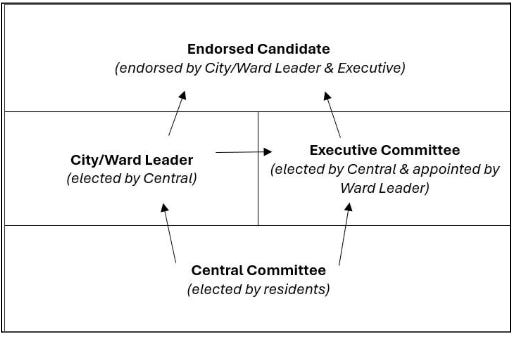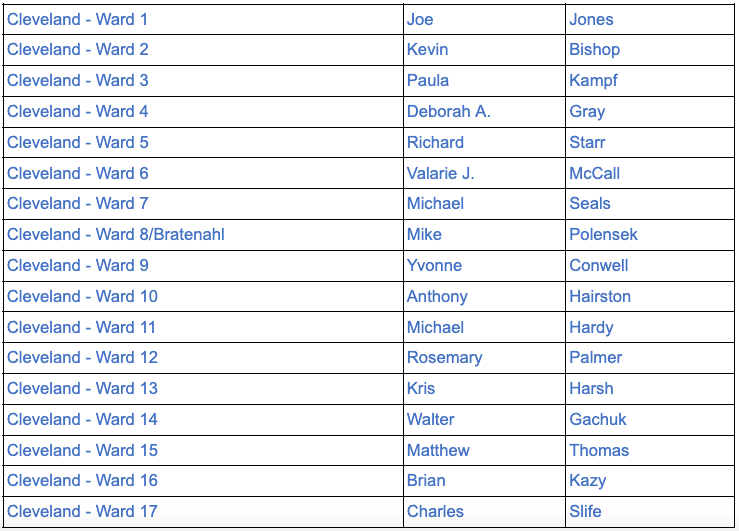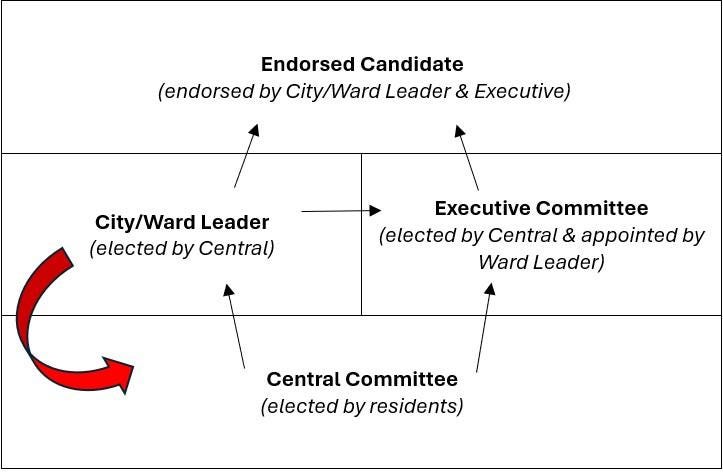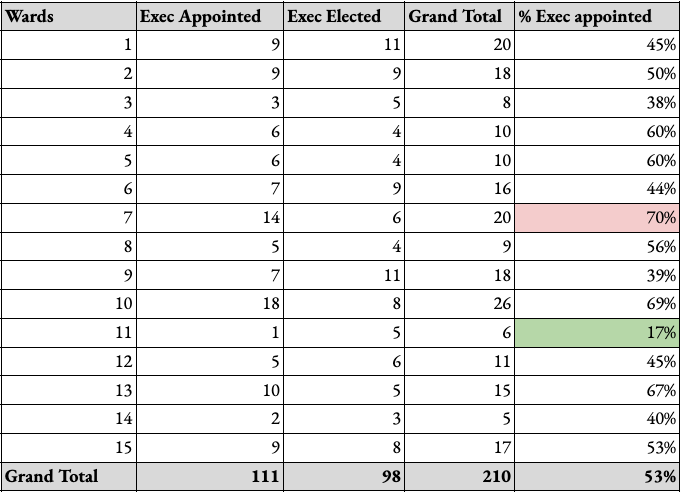Cuyahoga County’s fundamental political problem
You can’t work within a system that was designed to be unworkable.
Well, it happened again.
Another report of flagrant misconduct by an elected official in Cleveland, this time a city councilperson who had already been stripped of his committee assignments due to prior harassment of women, who had already faced charges related to shoving a woman canvassing his neighborhood, and who in his first stint on City Council was previously convicted in the Nate Gray bribery scandal.
The crime this time? Threatening to kill a city staffer.
Cleveland Ward 1 city councilman Joe Jones’ list of transgressions is lengthy, but the detail that takes the cake this time is his response to the law firm investigating the misconduct.
From cleveland.com’s Cory Shaffer:
When Jones did sit down, he denied saying “I’ll kill you” to the staffer — instead, he admitted, he may have said “I’ll blow you up on your motorcycle.” Jones said the statement was a joke and that he had no malicious intent, the letter said.
In any functioning democracy, any one of these incidents should be enough to ensure that someone like this can never win an election again. But people who know Cleveland politics, and people who know Jones’ Ward 1 in particular, still treat him as the favorite to win reelection in November.
Why can someone like Joe Jones still have a chance at reelection after so many disqualifying episodes?
Why do we seem to hear about elected officials in Cuyahoga County behaving badly so often?
Why is politics in Cuyahoga County so broken?
There are lots of reasons, but almost all of them intersect with one body: the Cuyahoga County Democratic Party’s endorsement process.
In Cuyahoga County, elections are decided months before the election, when the local Democratic party’s Executive Committee comes together to consider endorsing a candidate prior to the primary election.
The significance of this early endorsement is that it ultimately determines the outcome of the elections, as the endorsed candidate is then featured on the Democratic sample ballot, which is then shared with every Democratic voter at least once.
The sample ballot lists all the candidates endorsed by the Democratic Party, which is the most influential factor in determining who wins an election—more so than turnout.
Though it varies ward-to-ward and city-to-city, about half the committee is drawn from the Central Committee, which is elected from every precinct in the county.
However, the other half is appointed by city and ward leaders, who are themselves elected by these Central Committee members.
There are approximately 50 city and ward leaders across the county, with roughly 35 in the suburbs and one for each of Cleveland's wards.
The current ward leader for Ward 1 is, in fact, Councilmember Jones.
This type of concentrated power, where an individual serves as both the city councilperson and the ward leader, is quite common in Cleveland.
In fact, nine of the 17 members of the Cleveland City Council also serve as ward leaders (not including Kevin Conwell, whose ward leader is County Councilwoman Yvonne Conwell, his wife).
Councilmember Rebecca Maurer does not serve as her own ward leader (this year, that is dual-ward leader/city councilperson Richard Starr), but she was ward leader during her 2021 campaign for council.
The consequence of this type of power monopoly is that when the Ward Leader is the same as the Councilperson, then that means they are the one overseeing the process that either endorses them or doesn’t endorse them.
This includes both the hard power of getting to appoint whomever you want to the vacant Executive Committee seats and the soft power of running a slate every four years that helps you guarantee both your power as a Ward Leader and your influence over your ward’s election.
Or to quote Signal Cleveland’s Nick Castele:
[T]here’s a blueprint for getting and holding on to local political power. You can run a slate of supporters for the central committee, see yourself or an ally elected ward leader, recommend executive committee members and count on their endorsement when you run for office yourself.
It should be no surprise, then, that shortly before these new allegations broke, the Executive Committee for Ward 1, made up heavily of Jones appointees, endorsed Jones even though he had drawn a bevy of challengers, including State Rep. Juanita Brent.
Jones easily cleared the 60 percent threshold needed for endorsement, despite Rep. Brent herself being a member of the executive committee.
The vote was 14 to three.
The party has now called for a re-vote, which Jones himself has objected to on a number of grounds, such as the meeting being conducted virtually.
But it also doesn’t appear that any of the other Ward 1 candidates are themselves calling for a re-vote, with Rep. Brent even seemingly pointing out that this Democrat endorsement circus has little connection to the feelings of those in the community.
So what is the deal with the Executive Committee?
In Cleveland, there are 210 executive committee members, 53% percent of whom are appointed, whereas 47% are elected.
The ward with the most appointed executive committee members is the new Ward 7 at 70%, which had its own endorsement snafu earlier this year.
The ward with the least appointed executive committee members is the new Ward 11 at 17%.
What these proportions mean is that the choice of viable candidates that you, as a resident, get to choose from is ultimately determined by a group of folks appointed by the particular ward or city leader, who is ultimately determined by a group of folks at the precinct level that you may or may not have known you could vote for.
If you live in Cuyahoga County, do you know who serves as your Democratic ward or city leader?
Do you know who your Central Committee member is for your precinct?
Do you know who your appointed or elected Executive Committee member is for your precinct?
If you don’t know the answers to these questions, then sadly, you aren’t paying attention to how power truly works in Cuyahoga County.
THOSE WMDs. How a group of Michigan parents defeated anti-trans MAGA activists… How a little-known coup leader became a pan-African icon… Confessions of a laptop farmer: How an American helped North Korea’s remote work scheme… Snooker at the end of the world… Would you eat this bug to save the world?









But ... but ... but... back in 2009, the "reformers" and their media stooge the Cleveland Plain Dealer told us that changing to a charter form of government would prevent corruption forever and ever and ever. So this can't possibly be happening!